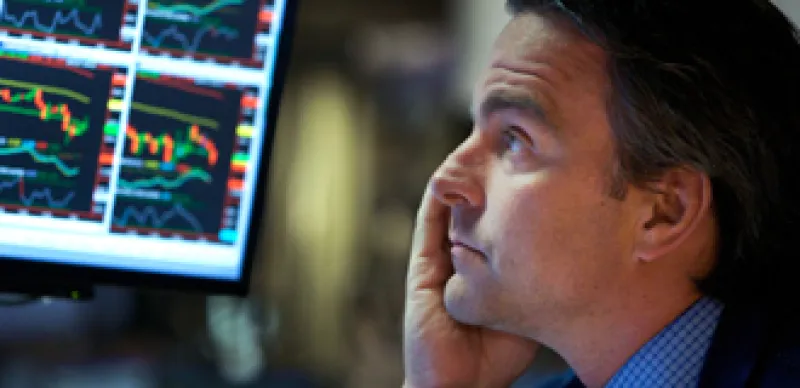With all the talk about high-frequency trading, an announcement for an electronic communications network (ECN) that boasts slowing down trades seems to be bucking a trend.
Not to Credit Suisse, which is launching an open displayed market called Light Pool. “Our primary clients are institutional investors who’ve been concerned that visible markets aren’t as friendly as they used to be,” says Dmitri Galinov, head of liquidity strategy at Credit Suisse’s Advanced Execution Group in New York.
Light Pool’s beta operation began on December 20 and is expected to go live at the end of March. But it’s already receiving positive feedback. “This initiative addresses specific issues that have been raised about the way our markets operate,” he says. “Light Pool uses a business methodology that caters to long-term investors.”
How does Credit Suisse expect to go about this? Carrots and sticks. “Our pricing and participation program uses a formula to identify the quality of flows — we’ll pay rebates to attract good flow and prevent direct access for bad flows,” Galinov explains. Firms that fail to meet certain standards aimed at protecting long-term investors still need to access the market under Reg NMS, but they’ll have to go through an exchange like the National Stock Exchange (NSX) where Light Pool’s quotes also will be published.
“These ‘bad’ flows will have to pay routing fees and go through slower routers to access our quotes,” he continues. “They’ll find they won’t be able to see trade information any faster than any other trader — they’ll have to read it on the consolidated feed like everyone else,”
Credit Suisse intends to use algorithms to categorize traders as contributors, neutral or opportunistic, but Galinov stresses that Light Pool is open to other brokers as well. Still, everyone’s going to be measured via an objective formula that will determine that the trader is not contributing to toxic flow.
Some of these protective measures are already employed within its dark pool, Crossfinder. "We’ve been classifying clients in our dark pools for some time based on the quality of their flows," explains Galinov. "We've decided to simply extend the methodology to a displayed market."
"Our hope is that Light Pool motivates other exchanges to change some of their practices so they become more competitive," Galinov explains.
"We’re not targeting high-frequency traders because we know that certain high-frequency trading strategies can be beneficial to the market," adds Galinov. "They’re today's equivalent of the old specialists and market makers, providing consistent liquidity and keeping markets efficient. But what's not appreciated is when a minority of firms out there employ strategies that artificially or falsely create movements in prices to derive information and take advantage of certain market inefficiencies, like front running orders."
Galinov is not concerned with Light Pool adding to Credit Suisse's volume. "We're adding value trying to make the market a better place to trade,” he explains. “Other exchanges will not lose volume if they adopt these policies for clients, so we see this as a win-win for the long-term investor."
Overall volume of equity trading has decreased and Galinov attributes it to the May 6 Flash Crash, in which people got hurt and moved assets into Treasurys and fixed income. In response to this, Light Pool risk checks every order to make sure that, for example, size is appropriate, among other things," he says, explaining that if an algorithm goes crazy they'll slow it down. "For example, if a stock's volume is one million shares a day and suddenly someone wants to trade five million shares, our system will automatically reject that order."
It’s easy to imagine why exchanges may cater to high frequency firms — the amount of volume they deliver, but Credit Suisse is promising to determine if firms are systematically profiting from trading activity that could hurt institutional clients. For these firms, trading in Light Pool will be slower and more expensive.
“We’ve asked exchanges we work with to be more friendly to our institutional clients, but exchanges didn’t do much or enough to make changes that long-term investors crave, like feeling secure that there are no unwanted speculators or information leakage,” says Galinov.
Slowing down gamers should make institutional investors take a look at Light Pool.






